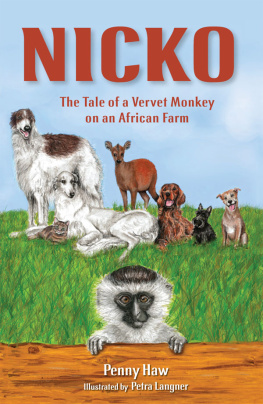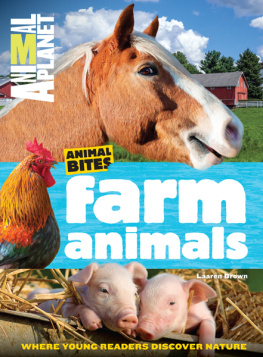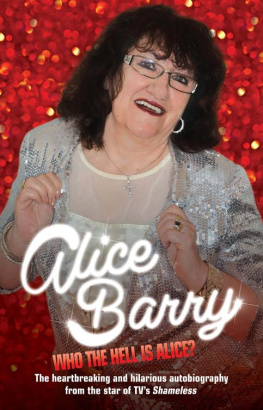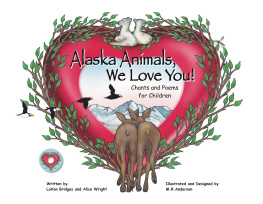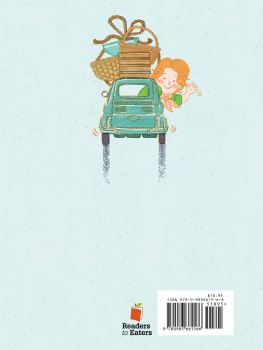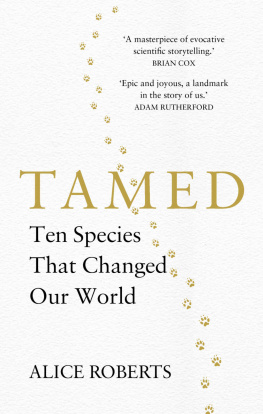
For Gammy
who gave me not only Nicko, but also
an enduring love of animals and the written word
Published in 2017 by Struik Children
(an imprint of Penguin Random House South Africa (Pty) Ltd)
Company Reg. No 1953/000441/07
The Estuaries, 4 Oxbow Crescent, Century Avenue, Century City 7441
PO Box 1144 Cape Town 8000 South Africa
www.penguinrandomhouse.co.za
Copyright in published edition:
Penguin Random House South Africa (Pty) Ltd 2017
Copyright in text: Penny Haw 2017
Copyright in illustrations:
Penguin Random House South Africa (Pty) Ltd 2017
All rights reserved.
No part of this publication may be reproduced, stored in a retrieval system or transmitted, in any form or by any means, electronic, digital, mechanical, photocopying, recording or otherwise, without the prior written permission of the publishers and the copyright owner(s).
Publisher: Linda de Villiers
Managing editor: Cecilia Barfield
Design Manager: Beverley Dodd
Designer: Randall Watson
Proofreader: Bronwyn Maynier
ISBN: 978-1-43230-759-2
ePub ISBN: 978-1-43230-882-7
Contents
Authors note
Although I dont recall meeting him, Nicko has been a part of my life for as long as I can remember. His most beloved human friend, Alice Kirk, was my late maternal grandmother. Her tales about the little vervet monkey, his friends and their adventures, and the many happy years he lived with her, entertained and delighted me throughout my childhood.
As one might expect, my son grew up on a healthy dose of Nicko stories as I retold them ad infinitum throughout his childhood. It was he who, having grown up, urged me to write this book, which has given me almost as much pleasure as hearing and reading Alices original stories about the mischievous, but loveable monkey.
Nicko The Tale of a Vervet Monkey on an African Farm was inspired by Alices love of animals and her memoirs and stories at least one of which was published in The Farmers Weekly in 1958 about Nicko and the many other creatures who lived with her. I hope you will love Nicko and his friends as much as I do.
Penny Haw
CHAPTER 1
Puppies, kittens and a baby monkey
I t was Mary who told me that something strange had arrived on the farm that morning. I was in the yard checking the two litters of puppies, which had been born a few weeks earlier. She was at my ankles as usual. Suddenly, Mary sprinted off towards the house as fast as her short Scottish terrier legs would take her. She raced back within minutes, stared at me intently from under her bushy black brows, and began talking excitedly.
What is it, Mary? I asked, shifting one of Zanas silky soft puppies so that he could latch more securely and suckle while his mother slept. Zana was an elegant white borzoi or, as some people prefer, a Russian wolfhound. Zana and her mate, the imposing chestnut and white male borzoi, Ruskie, made a magnificent pedigreed pair. Indeed, I had Zana and Ruskie to thank for my reputation Alice Kirk, breeder of most excellent borzois.

The other mother, a slender fox terrier-type crossbreed, Indy, and her three tiny puppies lay curled up quietly on the hay in the opposite corner. In the kitchen, Bobcat, the short-tailed Manx mother cat was nursing four two-week-old kittens. It had certainly been a fertile spring. There were also lambs, calves, kids (the goat kind), chickens, piglets and a foal frolicking elsewhere on the farm.
Grumpf, grumpf, grumpf! replied Mary insistently. As is typical of Scotties, Mary was very vocal. And, while some mistook her sounds for grunts, groans and moans, I was in tune with Marys language and understood her completely.
Ok, ok, Mary. Im coming. Lets go and see whats got you so wound up, I said, leaving the puppy enclosure and following her as she raced back across the lawn towards the house again.
As I got closer to the veranda, I saw that Mary wasnt the only excited one in the farmyard. Ruskie was slinking about nervously. When he saw me, he pointed his long, sharp muzzle apprehensively towards two women strangers who were standing on the stairs of the veranda. As Ruskie snuffled and shuffled about anxiously from a distance, the old red Irish setter, Smiler, sniffed curiously at the visitors legs. Even Mee, the duiker (whod arrived as a wonky-legged little calf with a severe limp complaining Mee, mee, mee almost a year ago and hadnt left) was there. She tiptoed forward from behind a nearby rose bush and stretched her dainty neck curiously towards the pair.
We greeted one another in isiZulu and exchanged names. Then the visitors, Mrs Khumalo and Mrs Ntuli, began their story.
We walked many, many miles across the hills because we have a big thing to ask you for a small thing, explained Mrs Khumalo, who was holding a homemade wooden box covered with fabric. But we believe you will understand because you are a mother, like us and also, because you are Alice Kirk.
The women lived in the beautiful Hella-Hella valley, which is more than half a days walk from my farm, Rivermead in the Lufafa valley in the KwaZulu-Natal Midlands of South Africa. The Hella-Hella valley is covered in coarse grass, thorn bush and aloes. There are also several dense natural forests in many of the deeper ravines. Farmers, like me and my husband Jack, Mrs Khumalo and Mrs Ntuli, grew mealies in the valley to feed to our families and cattle.
The mealies are good this year, said Mrs Ntuli, raising an arm to show me how tall the plants were. But not quite ready to harvest yet. We have been checking them every day, waiting for the right time. What we didnt know was that a troop of vervet monkeys living in the nearby forest was also watching the mealies. But they were impatient and didnt wait for the crop to properly ripen before creeping out of the forest to eat them.
Fortunately, before the monkeys ruined the entire crop, three of the womens children spotted them. Knowing their parents would be enraged, the youngsters scared the marauding monkeys off by throwing sticks and stones in their direction. It worked. The troop fled back into the forest. A few hours later, however, as the women inspected the damage done by the animals, they discovered that the monkeys had fled in such haste, theyd left someone behind.
Mrs Khumalos face softened and her eyes grew moist as she began to describe what theyd found. He is so young that his nose and mouth, the skin around his big, black eyes and his huge mushroom-shaped ears are as pink as the skin of a newborn piglet. His long, thin fingers and toes are like the tiny bones of a chicken wing, and his fur is as soft and downy as that of a newly hatched duckling. But his movements are clumsy and slow, like those of a very old woman.
Confronted by the women in the field, the baby monkey was confused and terrified. He drew his lips back to bare his tiny teeth at them as menacingly as he could. Ack, ack, ack, he threatened.
But he was far too young, small and helpless to put up much resistance when Mrs Ntuli gently pried him from the mealie stem to which hed been clinging. After some discussion, they decided to place him in a tree on the edge of the forest.
We thought his mother would hear his cries and sneak out of the dense bush to fetch him, Mrs Ntuli continued, looking closely at me as if she thought I might disagree with the plan. Thats what we would have done if one of our babies was there. Wouldnt you?
Next page
